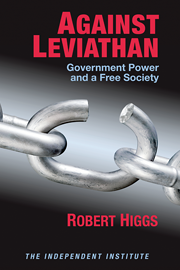Timothy McVeigh, it is fair to say, will go down in history as a terrorist. He set off a bomb that killed innocent men, women, and children along with the government agents against whom he had decided to retaliate for their assaults on Americans at Waco and elsewhere. In a letter sent to Gore Vidal, dated April 4, 2001, McVeigh described the reasons for his action:
When an aggressor force continually launches attacks from a particular base of operations, it is sound military strategy to take the fight to the enemy. Additionally, borrowing a page from U.S. foreign policy, I decided to send a message to a government that was becoming increasingly hostile, by bombing a government building and the government employees within that building who represent that government. Bombing the Murrah Federal Building was morally and strategically equivalent to the U.S. hitting a government building in Serbia, Iraq, or other nations. Based on observations of the policies of my own government, I viewed this action as an acceptable option. From this perspective what occurred in Oklahoma City was no different than what Americans rain on the heads of others all the time, and, subsequently, my mindset was and is one of clinical detachment. (reproduced in Gore Vidal, “The Meaning of Timothy McVeigh,” Vanity Fair, September 2001, p. 410)
Last fall, in the wake of the September 11 attacks on the World Trade Center and the Pentagon, the U.S. government launched its so-called war on terrorism, aiming first to destroy the al-Qaida and that organization’s Taliban enablers in Afghanistan. Much of the U.S. military action in Afghanistan has taken the form of bombing and other aerial attacks on supposed enemy personnel, structures, and equipment. The situation on the ground, however, has proven to be less than transparent: it has been difficult to distinguish friend from foe, innocuous civilian from armed fighter.
Army Special Forces Team 555, among others, undertook the task of identifying enemy personnel and property and directing aerial attacks on them. When U.S. military pilots expressed misgivings about attacking particular targets, the team’s leader, Chief Warrant Officer Dave Diaz, opted to “play this terminology game.” He told his men: “Yes, it is a civilian village, mud hut, like everything else in this country. But don’t say that. Say it’s a military compound. It’s a built-up area, barracks, command and control. Just like with the convoys: If it really was a convoy with civilian vehicles they were using for transport, we would just say hey, military convoy, troop transport” (qtd. in Dana Priest, “U.S. had difficulty identifying targets,” New Orleans Times-Picayune, February 20, 2002, p. A-3, reprinted from the Washington Post). The pilots came to accept the judgments of the fire controller on the ground and directed their ordnance accordingly. Although Warrant Officer Diaz claims that his group attempted to avoid killing civilians, on certain occasions Team 555 members found women and children intermingled with persons they took to be Taliban fighters “they needed to strike at that moment.” In those instances, “the guidance I gave my team, and the guidance from higher (headquarters), is that they are combatants” (ibid.).
Elsewhere in Afghanistan, after an air strike in early March caused the death of a woman and the wounding of a child, a U.S. commander at Bagram Air Base said he had not known that the woman and the child were in the vehicle on which he had ordered the attack, but he also said that, had he known, he would not have changed his orders: “we would have gone ahead and attacked anyway” (qtd. in David Wood, “Status of women, children questioned after airstrike,” New Orleans Times-Picayune, March 14, 2002, p. A-7). Some U.S. military officers questioned whether killing civilians was the best way to win the support of the local populace, but others expressed the view that the actions taken by the al-Qaida had removed the need for moral niceties: “In a war to the bone like this one, where the enemy’s immorality is publicly proven, if they involve their noncombatants then they become legitimate targets, no matter how regrettably” (ibid.).
After U.S. ground troops had mistakenly attacked a group of Afghans who were not affiliated with the Taliban or the al-Qaida, killing sixteen of them and taking twenty-seven others captive for a time and roughing them up before releasing them, Secretary of Defense Donald Rumsfeld declined to apologize: “Let’s not call them ‘innocents,’” he told reporters. “We don’t know quite what they were. They were people who fired on our forces” (Thom Shanker, “Attack victims not Taliban or al-Qaida,” New Orleans Times-Picayune, February 22, 2002, p. A-13, reprinted from the New York Times). Self-defense, it would appear, is not a valid excuse for firing on attacking U.S. troops. Rumsfeld declined to blame his forces for their actions and indicated that no disciplinary action would be taken against those responsible for carrying out the attack: “Why would there be? I can’t imagine why there would be any” (ibid.).



















